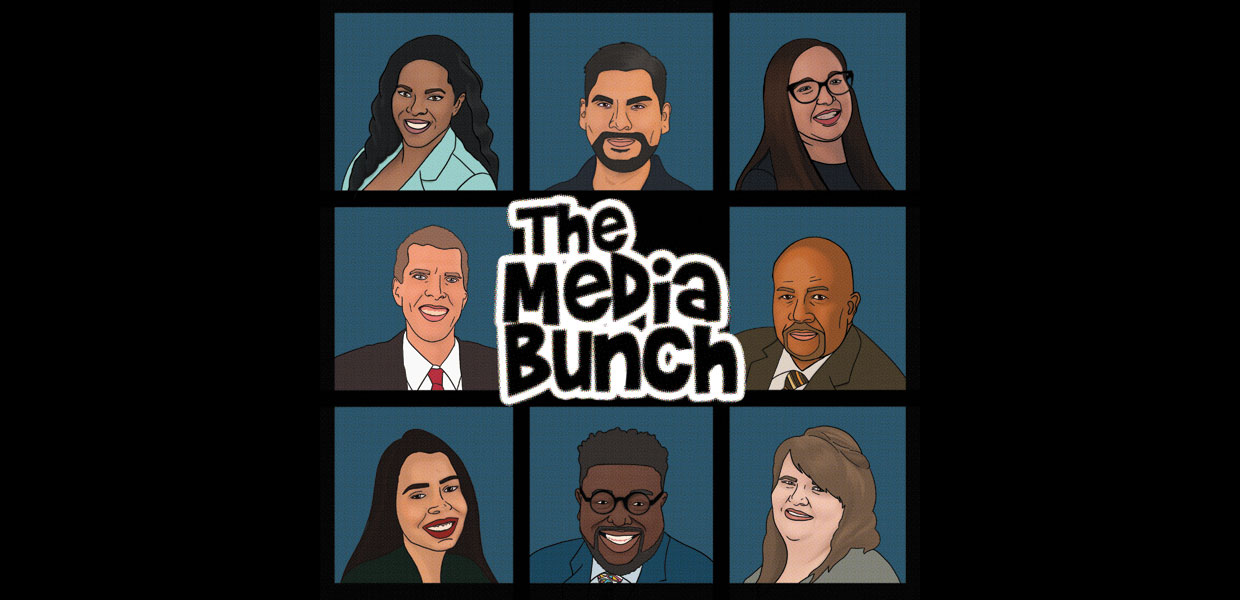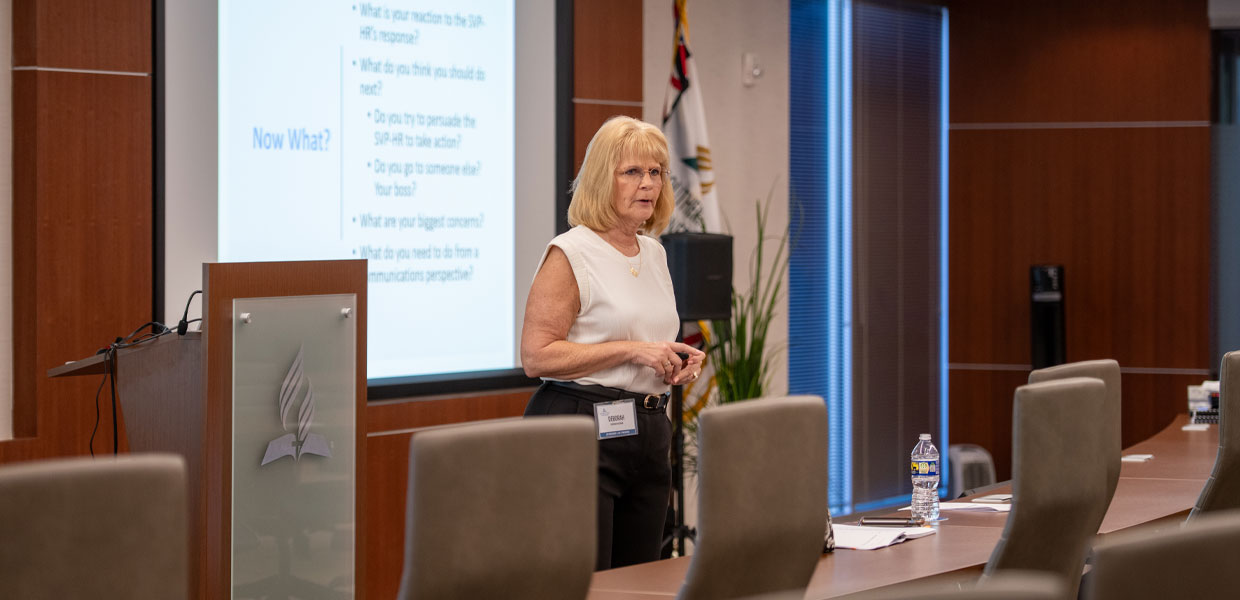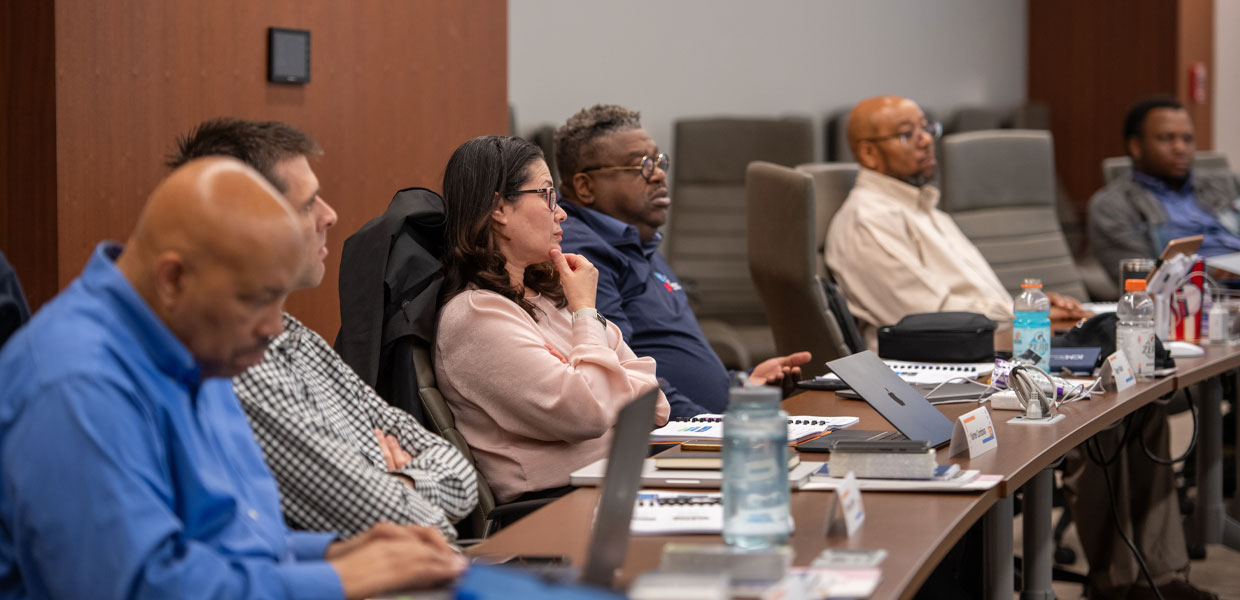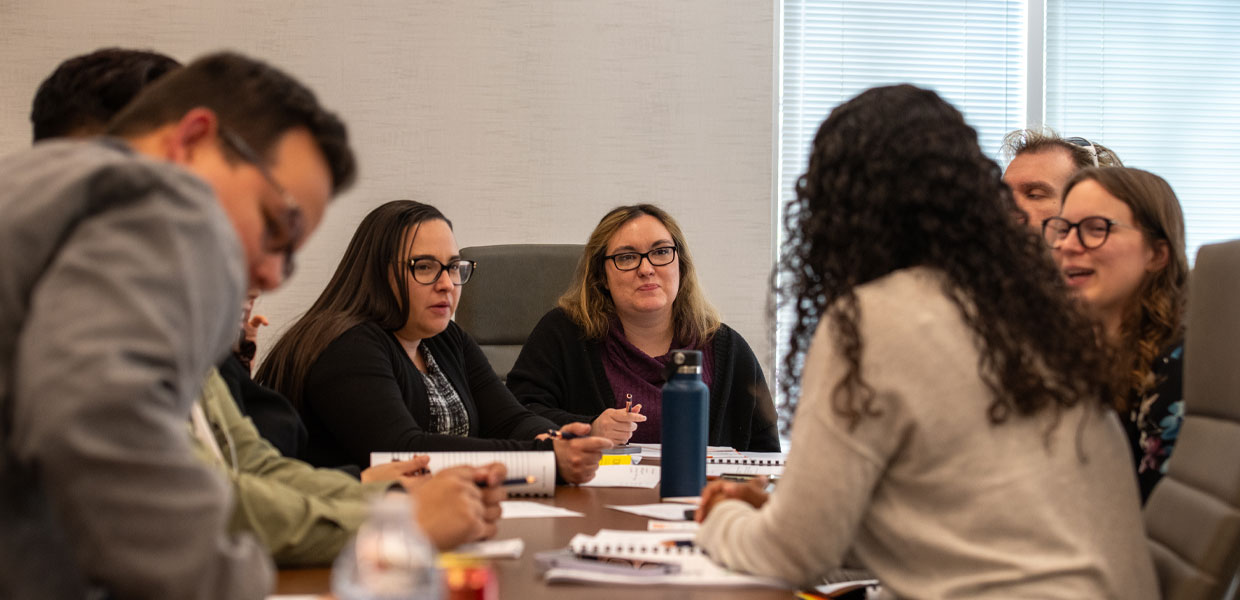



Answering “What Do You Do?”
In the ever-changing field of communication, the question, “What do you do?” often prompts responses that are as vague as they are diverse from Seventh-day Adventist communicators working for the Church. When probed about their responsibilities, a communicator might list such tasks as writing, photography and videography, graphic design, social media, marketing, website management, event support, production, teaching, and crisis communication.

However, 75 years ago, the answer to the same question was much simpler. Often a Church communicator’s duties were limited to working on content for the Union magazine and their own publications. In the past 10 years, the field of communication has expanded to encompass even more responsibilities. Yet, the underlying responsibility is the same: Be a voice of truth that brings inspiration, hope, and a favorable image of the Adventist Church to both members and nonmembers alike.
Telling the Story
Daniel Claudet, Gulf States Conference communication director, worked at Hope Channel most of his life. Claudet said videography has always been a passion for him, and, with years of experience, it is also one of his strengths.
When he accepted the communication director position, he wanted to continue the video production of the Gulf States Conference. With the support of the Gulf States Conference, he consistently produces videos.
“It makes me happy that the Conference administration supports buying equipment or providing me the resources to go out into the field and record stories, testimonials of [how] God is blessing the Gulf States Conference,” said Claudet.
More recently, the Gulf States Conference has been publishing several short form videos on Instagram, with one video receiving 4.4 million views. Claudet sees the short form videos as a new type of evangelism.
“People are getting to know more of Jesus, and that is my joy of bringing videos to my Conference,” said Claudet.
Paola Mora Zepeda, Kentucky-Tennessee Conference media ministries director, also enjoys using social media as a form of evangelism, believing it is one of the most effective mediums to reach people who may not be reached otherwise.
“Everyone has a phone; everyone has a computer — you’re putting yourself where the people are. Rather than asking them to come to you in your church, you’re instead going to meet them where they are at,” said Mora Zepeda.
Mora Zepeda said in general her favorite part of the job is hearing and sharing people’s stories. This presents itself in a variety of content across the Kentucky-Tennessee Conference’s social media platforms: Bible study tips, encouragement, photos, interviews, member spotlights, and stories.
Growing up in the mission field, Mora Zepeda was captivated by the diverse narratives shared by fellow missionaries. She loved hearing the stories and wished other people could hear them too. However, it wasn’t until college that she realized her love of stories and passion for writing could be combined into a career.
She views each person’s story as a valuable narrative that shows God’s love. She feels honored to be trusted with sharing people’s stories, and trusts that God will use her stories for His glory.
“I feel so privileged to be able to explore all these different forms [of media] and to have people trust me with their stories so that I can help tell them,” said Mora Zepeda.
Roger Wade, South Central Conference communication director, echoes a similar sentiment about communication. Wade said regardless of the specific tasks his role entails, his greatest joy is engaging in ministry through communication.
“It doesn’t matter what I do, [my favorite part of the job] is just being able to bring new information or information of what has happened to a wider audience,” said Wade.
One of Wade’s favorite ways to spread information is through live streaming. He believes this medium gets closer to the subject because its live nature allows the content to be authentic.
For Raquel Levy Gonzalez, Florida Conference communication director, her favorite part of her job is observing the fruition of strategic planning and promotional campaigns as individuals attend events in person.
“We operate so much in a digital world, that it’s so nice when you get to see tangible results,” said Levy Gonzalez.
Levy Gonzalez emphasized that the true reward is not recognition, but in witnessing individuals being blessed, whether directly or indirectly, by efforts of the communication team.
“We work in communication because we are truly passionate about the Kingdom and growing the Kingdom. And most everything we do, whether it’s big or small, is for that purpose,” said Levy Gonzalez.
Handling Crisis Communication
Bryant Taylor, D.Min., Southern Union communication director, and his team saw how crisis, defined as anything that hurts the Church’s reputation, impacts every conference. In March of this year, Taylor invited Deborah Hileman, SCMP, Institute for Crisis Management president and CEO, to host a training at the Union office to ensure every communication team was equipped to face crises.
“Crisis is inevitable. Understand: the religious community is not immune and is often seen as a soft target. It was imperative that our communication directors receive training to plan, prepare, and manage the crises our organizations face,” said Taylor.
During the two-day training, 16 communicators refreshed their knowledge of crisis communication while also receiving further instruction. One of the highlights of the training was a tabletop exercise where the attendees split into two groups and worked through a fictional crisis. At the end of the training, each participant received a crisis communication certification.
A survey following the event showed all attendees found the crisis communication training insightful, with more than 80% requesting additional crisis communication training.
Fulfilling the Great Commission
The call to share the Good News to everyone can be fulfilled in different occupations. From Church leaders to local members, everyone is equally called and qualified to share the Gospel through the best mediums possible. Whether through a smile at a stranger or an article in the Southern Tidings, the smallest act of communication could make the biggest difference, even if the outcome may be unknown on Earth.
“And then he told them, ‘Go into all the world and preach the Good News to everyone,” Mark 16:15 NLT.
How to Submit an Article to Southern Tidings
If you are interested in submitting a story for possible publication in the Southern Tidings, contact the communication director for your conference.
Carolina Conference: Rebecca Carpenter – BCarpenter@carolinasda.org
Florida Conference:Raquel Levy Gonzalez – Raquel.Levy@floridaconference.com
Georgia-Cumberland Conference:Nathan Zinner- NZinner@gccsda.com
Gulf States Conference: Daniel Claudet – DClaudet@gscsda.org
Kentucky-Tennessee Conference: Paola Mora Zepeda- PMora@kytn.net
South Atlantic Conference: James Lamb – JLamb@sacsda.org
South Central Conference: Roger R. Wade – RRWade@scc-sda.org
Southeastern Conference:Benia Dean – Communication@secsda.org



Comments are closed.